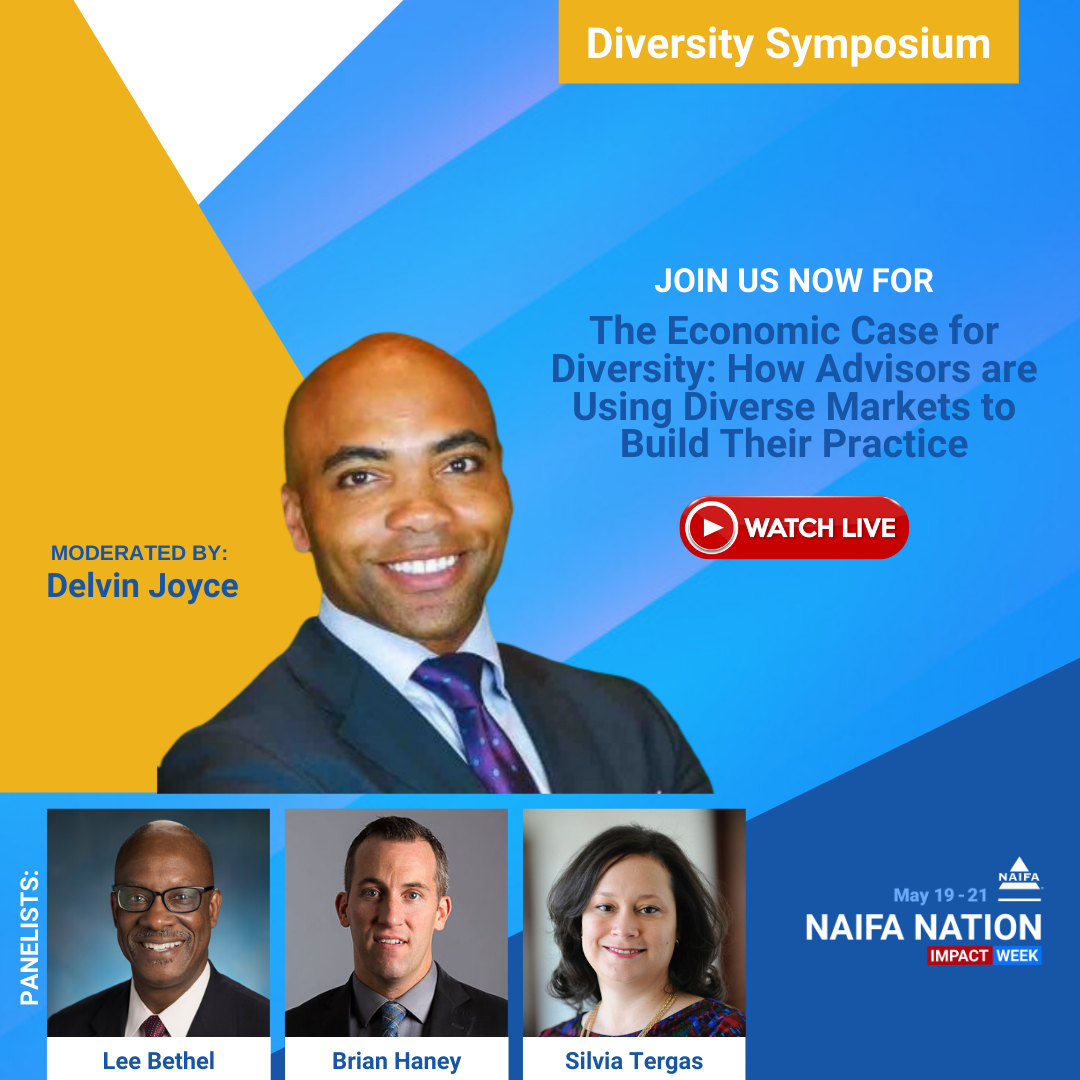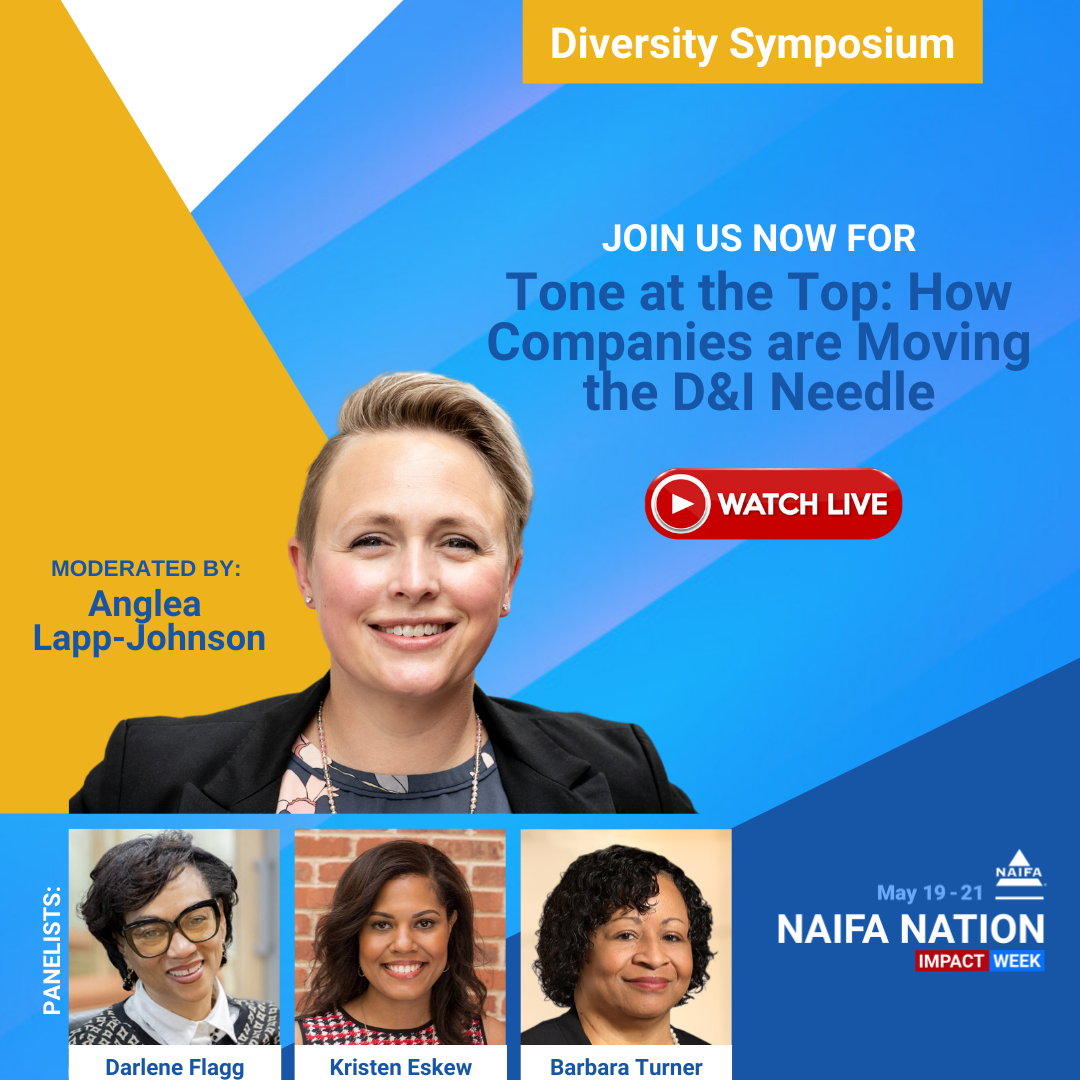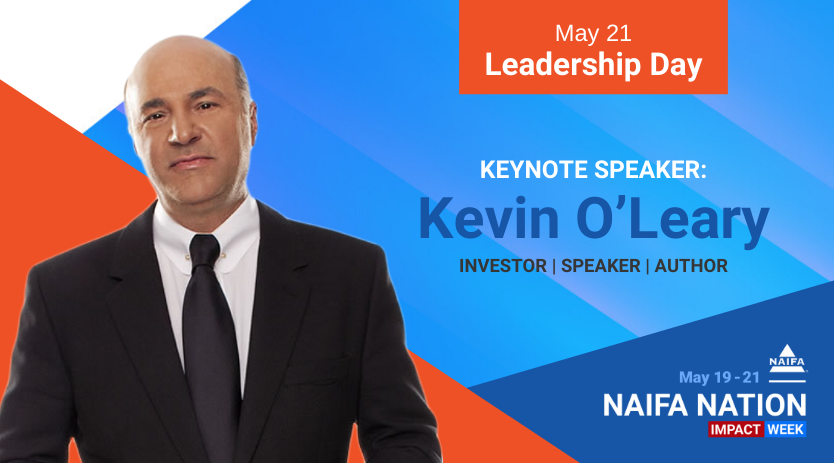NAIFA Diversity Symposium: Advisors Panel
Moderated by Delvin Joyce, CLU, ChFC, RICP, Prosperity Wealth Group
Panelists:
Lee Bethel, CLU, ChFC, REBC, RHU, CAP, ChHC, AIF, CPFA, CASL, C(k)P, Comprehensive Benefit Services
Brian Haney, CFS, CLTC, CFBS, CIS, LACP, CAE, The Haney Company
Silvia Tergas, Prudential Advisors
Is Diversity an Intentional Focus or Did It Grow Out of Opportunities
“It’s definitely intentional,” said Silvia Tergas. As a Latina, she said, she was conscious that her family and many like them had financial services needs that were not being served. She developed a strong academic back ground in finance, but was still “apprehensive about being a woman and being Hispanic in financial services,” because it was a white, male-dominated field. But she learned to use the things that set her apart as a strength. She began marketing in Hispanic communities and spread to other underserved groups, including LBGTQ and African American communities.
Brian Haney, from Washington, D.C., is a native Washingtonian who is very invested in his community. “When I work in a community I want to be able to connect with all aspects of that community, not just the small segment I’m most comfortable with,” he said. In the long run, that’s not only good for the community, but also better for his practice. It was not a leap for him to promote diversity in his practice, because he grew up in his father’s firm, which had a diverse staff.
Lee Bethel graduated from Morehouse College. After graduation, he met African American business owners through the Morehouse alumni network and realized they had underserved financial services needs. He is a “problem solver, not a salesman,” he said. So among his top goals is to educate clients spread financial literacy. African American communities often lack financial literacy education, he said, and it may not passed down through families.
How Important Is Bilingualism?
While she is bilingual, Tergas said she does most of her practice work in in English, working with first-generation professionals. For her, cultural awareness is bigger than language. You need to know your client. Make connections and break through an inherent mistrust of financial services in many minority communities.
She says she makes a point to listen first, and have cultural competency. She encourage questions and spends time up front getting to know clients and making them comfortable.
“It may take time and patience,” she said. “The sales cycle may be longer.”
Can You Serve Diverse Communities You Are Not a Part of?
However, you don’t necessarily have to be a member of the community you are serving, said Haney, who is a white male. “I don’t think there was a lot of magic to it. Connect with the communities and their leaders and find out what the communities needed. Set aside current assumptions and listen and learn. Being comfortable with people and understanding the communities so you can be an ally, even if you’re not a part.”
“Needs of the people we serve have no color,” Bethel said. It’s important to understand people’s needs, be able to communicate your understanding, and address those needs effectively. Develop a team that can help you into a community.
What is the Economic Impact of Promoting Diversity in Financial Services?
Risk management products, retirement planning and all the products and services advisors provide have economic impacts on families and communities, Tergas said. At her firm, the serve as financial educators and offer programs without solicitations to help communities and provide resources. They often open doors for future communication, but the main goal is helping the economic situation of the community.
Haney noted that the COVID-19 outbreak is having a huge, long-lasting economic impact. Financial professionals are on the front lines and will need to help diverse families and communities get through, he said.
Is There a Risk of Limiting Your Practice by Focusing on Minority Communities?
Bethel says his practice works with minority communities but develops centers of influence from all sectors, His professional success, training, and education give him the ability to connect with accounting firms and human resources consultants for referrals.
“We market ourselves as trustworthy, knowledgeable financial professionals,” Tergas said. That appeals to any community. It comes down to producing results, whoever you are serving.
How Do We Move Forward?
Joyce wrapped up the session by what the industry can do to improve diversity and inclusion results.
“It starts with all advisors embracing diversity and inclusion and becoming a change agent,” Haney said. The global economy demands diversity. Advisors must keep pace with the growth of diversity or they won’t be as successful as they could be. “You can always become more diverse,” he said, “and become a diversity champion.”
Bethel said it’s important for the industry to recruit diverse agents and advisors. Those currently in the business can play a part by encouraging insurance and finance as a career.
“Multicultural is Main Street,” Tergas said. “You need to embrace it to succeed.”








.png?width=300&height=300&name=CC%202025%20Ad%20(300%20x%20300%20px).png)
.png?width=300&height=600&name=Tax%20Talk%20Graphic%20-%20email%20tower%20(300%20x%20600%20px).png)



.png?width=300&name=NAIFA-FSP-LH%20with%20tagline%20-%20AT%20blog%20email%20ad%20(300%20x%20250%20px).png)
.png?width=728&height=89&name=2024%20Congressional%20Conference%20(728%20x%2089%20px).png)
